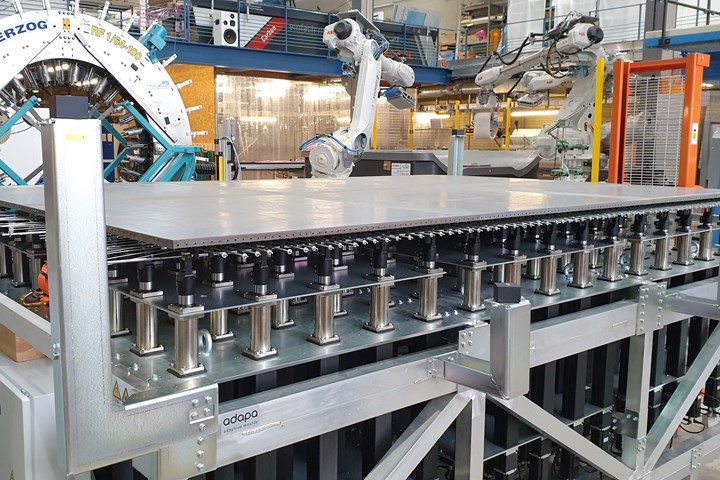Adapa A/S technology chosen for flexible composite design and manufacture
The University of Stuttgart Institute of Aircraft Design is using adaptive mold technology to develop composite products and automated robotic manufacture processes for the construction industry.

Photo Credit: University of Stuttgart Institute of Aircraft Design
It was recently announced that the University of Stuttgart (Stuttgart, Germany) Institute of Aircraft Design have chosen Adapa A/S’ (Aalborg, Denmark) adaptive mold technology in a project aimed at introducing composites in the construction industry, with reduced material use through load-path optimized composite structures and automated manufacturing to reduce CO2 gas emissions.
Other requirements that the technology is said to support includes an interaction with pre-designed production processes while still enabling flexibility in production design. Further, because the composite structures are to be manufactured based on 3D design files, and will also be used for predicting the mechanical and material properties of the final structures via simulations for future potential, the university felt this technology fit its expectations.
Related Content
-
Mighty Buildings opens new factory in Monterrey, Mexico
Company takes next step in strategy to scale rapid development and construction of 3D-printed, climate-resilient, carbon-neutral homes leveraged by patented composite materials.
-
Gatorbar, NEG, ExxonMobil join forces for composite rebar
ExxonMobil’s Materia Proxima polyolefin thermoset resin systems and glass fiber from NEG-US is used to produce GatorBar, an industry-leading, glass fiber-reinforced composite rebar (GFRP).
-
Composites end markets: Infrastructure and construction (2024)
Composites are increasingly used in applications like building facades, bridges, utility poles, wastewater treatment pipes, repair solutions and more.










.jpg;maxWidth=300;quality=90)

